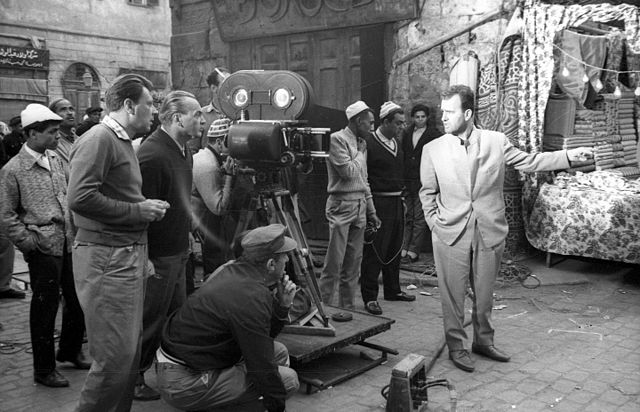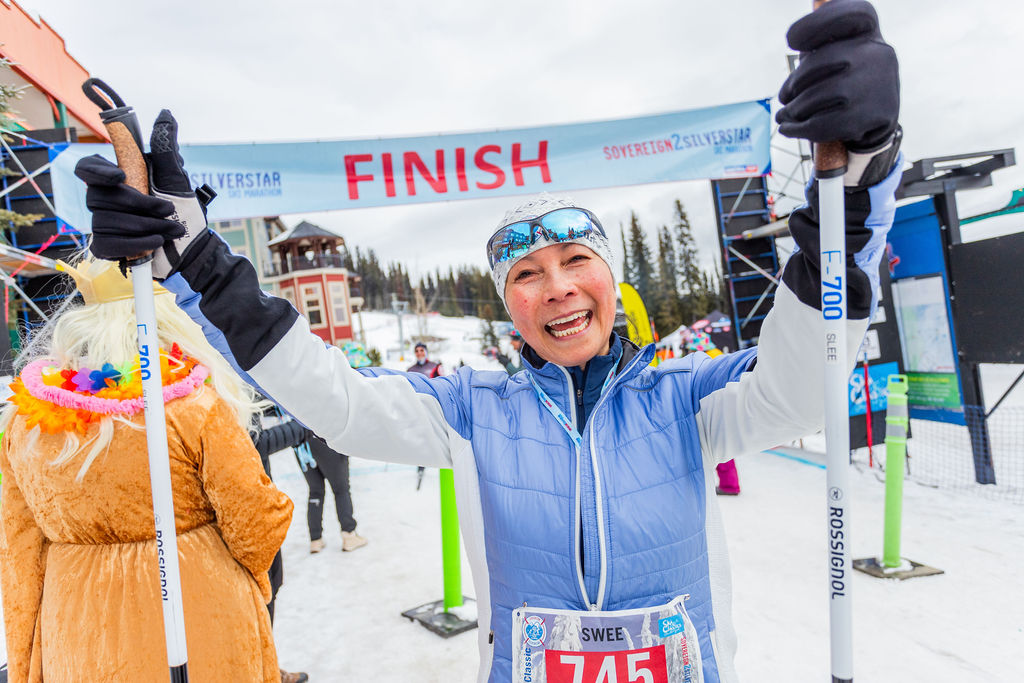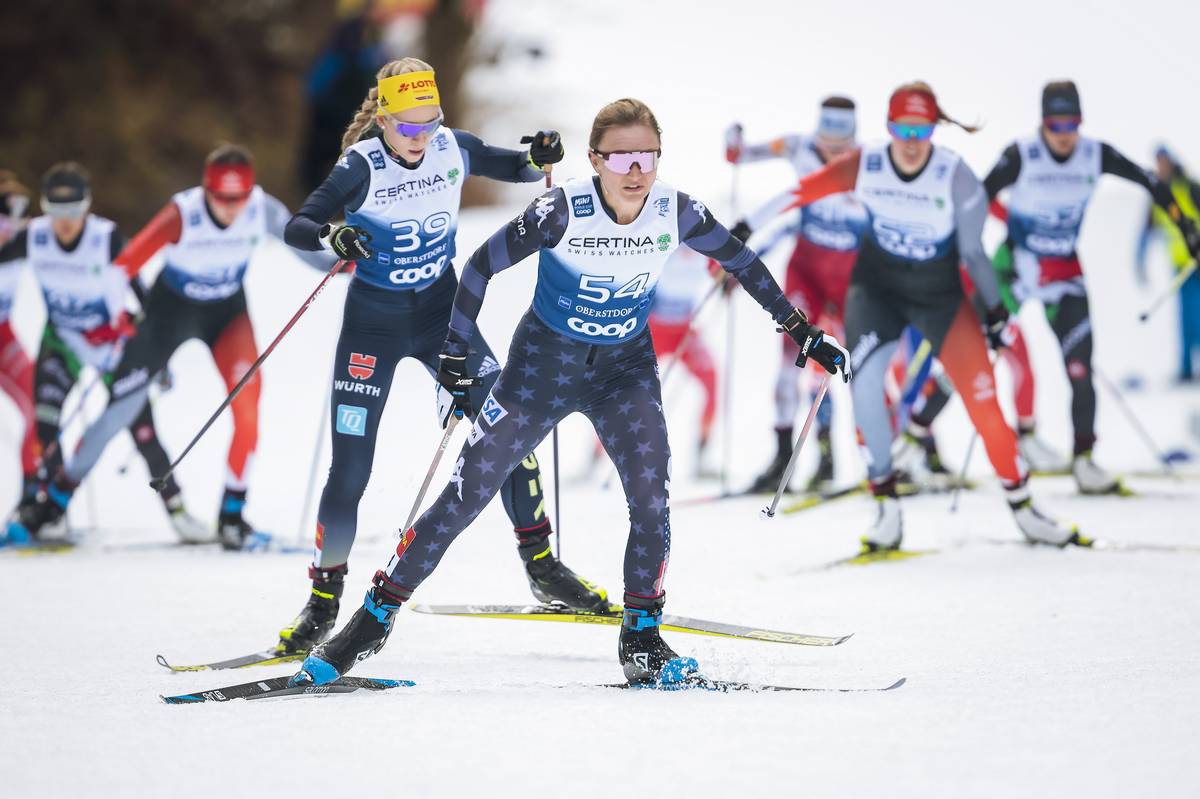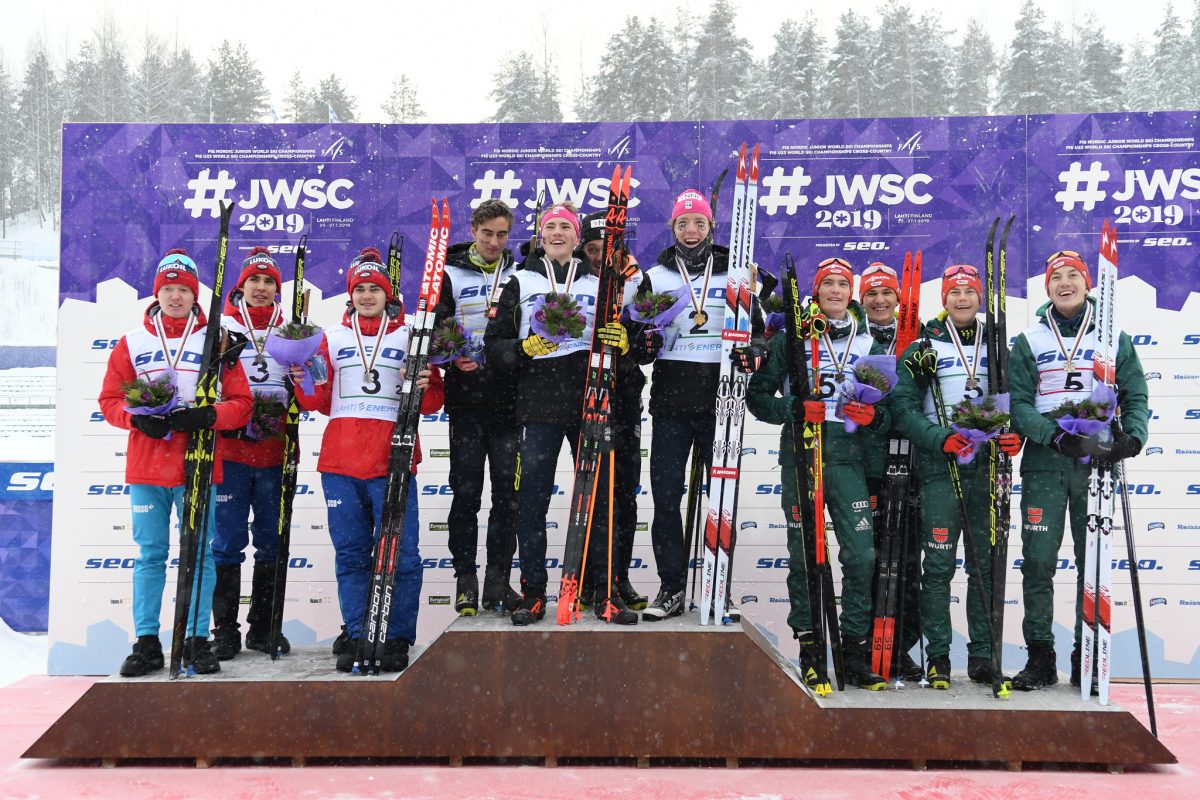
Nordic skiing doesn’t exactly come to mind when considering the X’s and O’s of sport.
Those who don’t ski on Saturdays or Sundays might be familiar with football’s schematics. The arrows, the diagrams, the dense playbooks. Basketball has symbolism: X’s in the key, plays for a pick and roll, defensive shifts from zone to man-to-man coverage.
The cross-country analog, and maybe this is a stretch, is the line-up for the 4 x (add a distance) relay. Where do you place the aerobic powerhouse or the kid who might just box out another team from taking a key position? Does the big-motor ski the scramble leg or the anchor? Or maybe somewhere in between?
“We talked to the skiers all week and asked how the courses were for skiing and if the courses were hard — they’re kind of shorter steeper climbs and then faster downhills, so sometimes it’s a little harder to get away,” the U.S. Ski Team’s Development Coach Gus Kaeding told FasterSkier in a call on Saturday. “So we figured with the strength of the field and 5 k for the men, it was going to be hard to make or break a point whether it was us or another team.”
Kaeding’s calculus, made in consideration with other U.S. coaches along on the trip, including former D-Team coach and current Cross Country Sport Development Manager Bryan Fish, was to keep the U.S. in touch with the front pack, and at times, leading it.
“We kind of talked with each of the guys separately and kind of talked about tactics, but one strength we felt our team had, was just simply the depth,” Kaeding said of the U.S. foursome.
On the surface, the Xs and Os manifest most starkly with the lineup. For the U.S., Luke Jager skied the first classic leg, Ben Ogden the second. The skate legs were handled by Johnny Hagenbuch and Gus Schumacher. Three of the four had been here before. At last year’s World Juniors in Goms, Switzerland, Jager, Ogden, Hunter Wonders and Gus Schumacher skied to a sensational second in the 4 x 5 k relay. With Hagenbuch in place of Wonders, who is now at U23 Worlds, on paper at least there was no loss in capacity.

“Looking at all the other teams, we kind of knew everyone else had a weak link at some point. We wanted to stay near the front and make sure when we were going up against that weak link, and we were pushing the pace enough to make them pay for it,” said Kaeding. “And that worked over the course of the race.”
Around the 3.5 k mark of Jager’s scramble leg, the U.S. skier upped the pace. Evident from the drop-off, many teams paid the price in oxygen debt. Jager’s initial surge wasn’t a “snap” for chasing teams. But it was enough of a push that at the 5 k mark when Jager tagged to Ogden, the U.S. handed off in first, followed closely by France and Norway less than a second back. Germany, in fourth place at this point, was ten seconds back.
“Each guy executed their individual game plan to perfection,” Kaeding continued. “I know Luke wanted to start out conservatively in the pack and then make a hard move, in the end, he did that. Ben did the same. Each was able to come in with the lead, which wasn’t necessarily meant to break, it was just meant to give an easy exchange and then allow the next skier just a little time to kind of ski into the race. And that’s exactly what they did.”
Like Jager, Ogden helped make and sustain a separation. When Ogden came through the tag zone in first, Germany was 2.2 seconds back, Norway 2.6. The next closest team, Sweden, dangled 15.9 seconds behind in a train including France, Russia, and Finland.
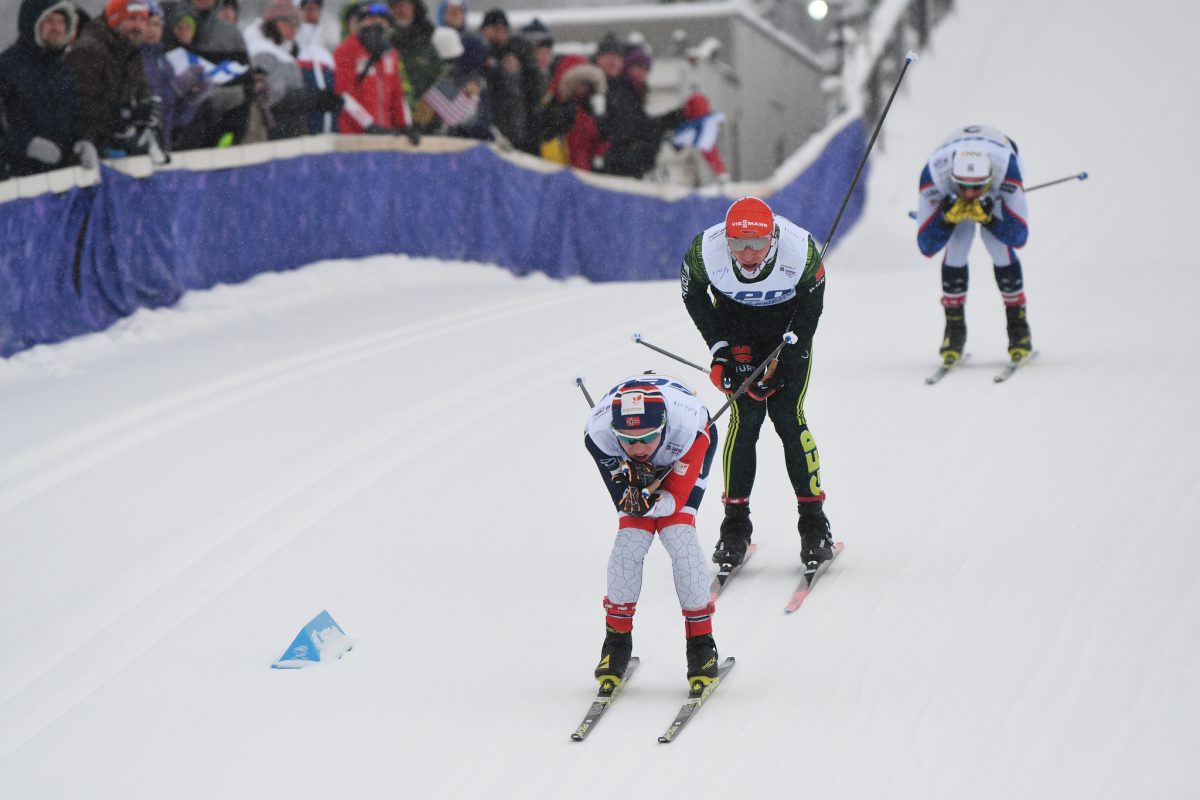
Hagenbuch stayed true to the team’s formula: ski near the front and don’t cede position. He too kept the team in gold medal contention when he tagged Schumacher in third, 2.0 seconds behind Germany in first and Norway in second (+0.6).
“Then they left it up to Gus … who skied a really smart anchor and bought his time, and bought his time,” Kaeding said of Schumacher’s anchor leg. “He led a little bit when the pace needed to be pushed so others didn’t catch. And it was pretty obvious through the race that the Russians were coming.”
At 16.1 k, with 3.9 k remaining in Schumacher’s effort, Russia was approximately 10 seconds behind the U.S. By 19 k Russia had nearly made contact to the U.S., skiing 2.8 seconds behind the first place U.S. team.
“Gus went with about a kilometer, a kilometer and half to go,” Kaeding said of Schumacher’s chess match. “I’m sure that was really hard for Terentev [Russia’s anchor leg skier] as he had just made contact and to see Gus go. And he held that three-second, four-second gap all the way until the finish. So he had the confidence that he could outsprint one of the best sprinters in the world and had the distance chops to be able to push the pace the entire way. It was pretty cool to see those guys really set out a plan and execute it to perfection.”
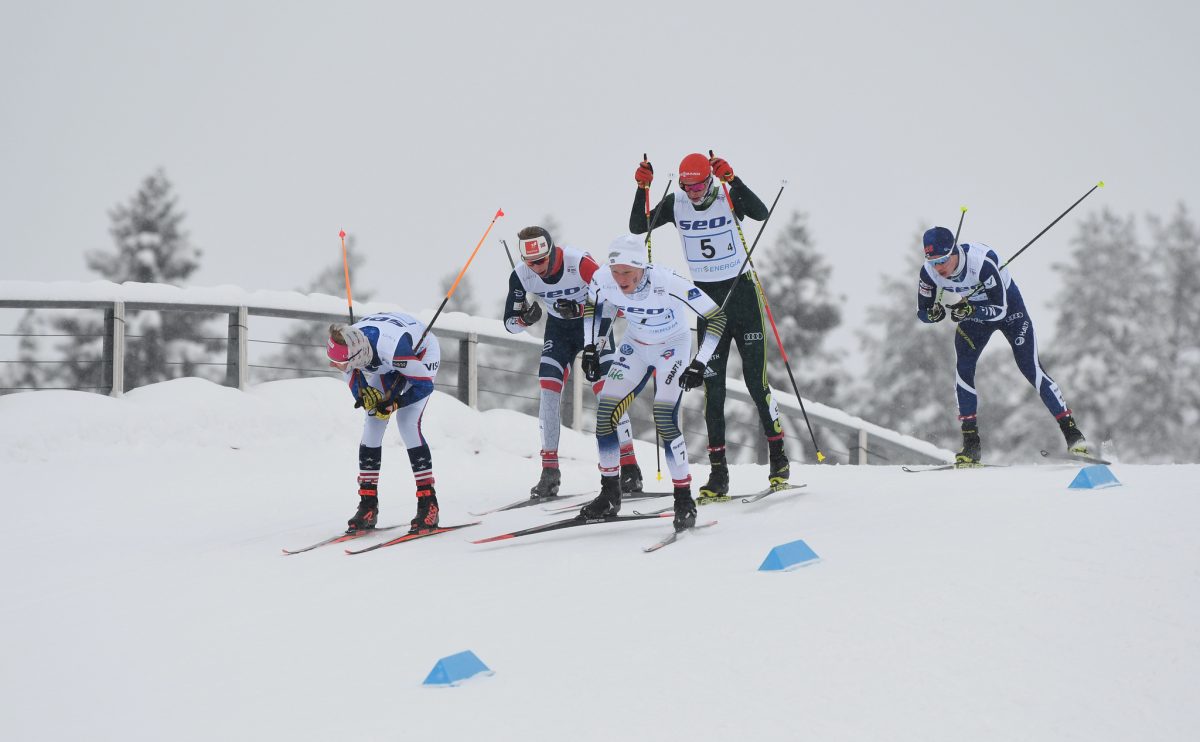
From Schumacher’s eyes, the gamesmanship was tense. With Norway slowing the pace and Germany upping it, Sweden, Russia, and Finland made contact with the three front teams.
“So by 2.5 k into my leg, we were all together in a group and I was definitely a little nervous because there were some great sprinters in that group,” Schumacher told FasterSkier in a call.
Despite skiing a classic sprint, a 15 k skate, and a 30 k classic mass start (in which he placed fourth overall), Schumacher said his focus on the relay remained.
“I for sure did not forget about the relay at all this week,” Schumacher said matter of factly. “I definitely tried to visualize the best outcome. I visualized a lot of different outcomes as well. Winning and coming from the back and stuff like that.”
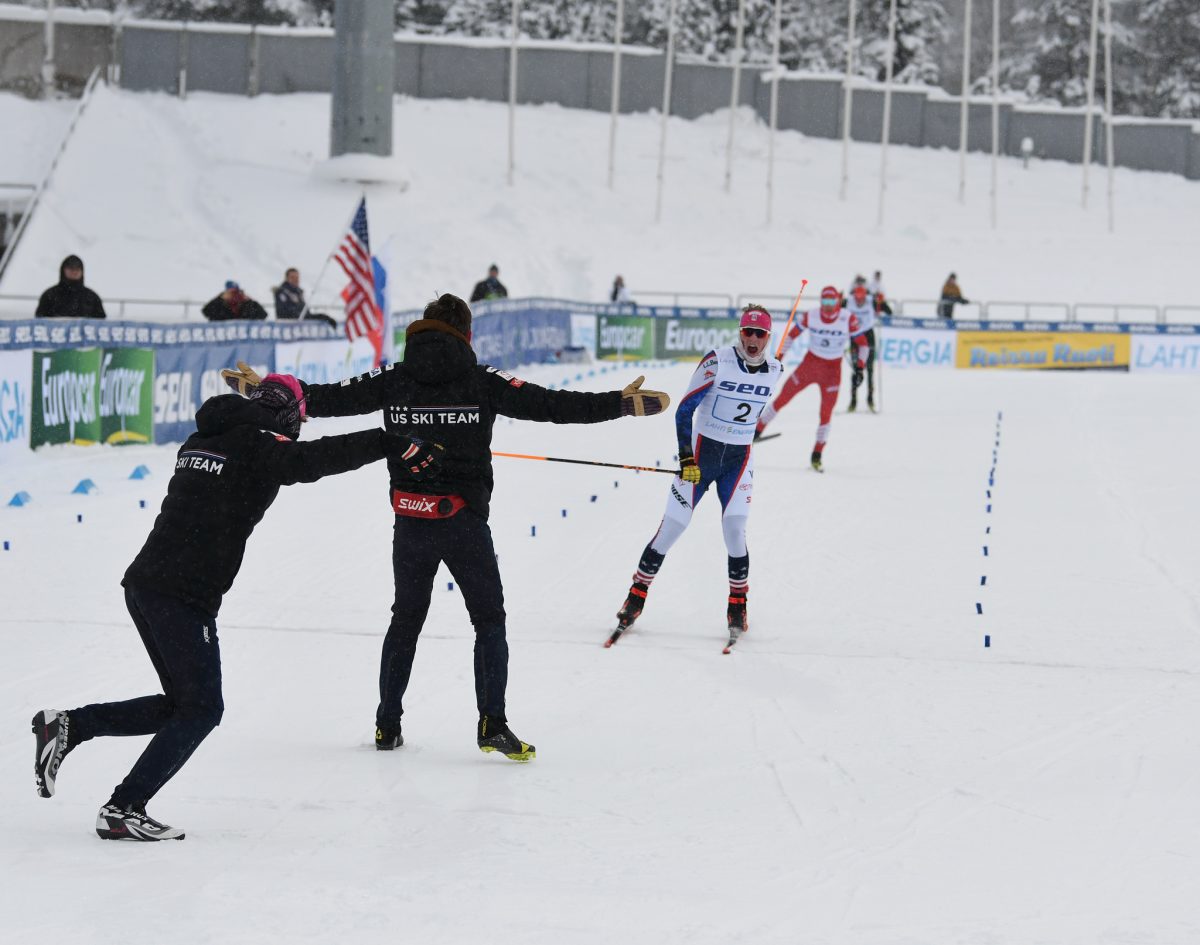
The vision in the last kilometer was clear and straight ahead. In any other parallel universe where Russia maybe hangs on, or Schumacher comes from the back, that simply did not play out in the here and now in Lahti.
45:34.7 was the winning time for the U.S. Russia placed second (+3.8), German third (+6.3).
45:34.7 minutes, a finishing time these young men will not soon forget as they evolve as athletes and tell tales of their historic win.
Jason Albert
Jason lives in Bend, Ore., and can often be seen chasing his two boys around town. He’s a self-proclaimed audio geek. That all started back in the early 1990s when he convinced a naive public radio editor he should report a story from Alaska’s, Ruth Gorge. Now, Jason’s common companion is his field-recording gear.

